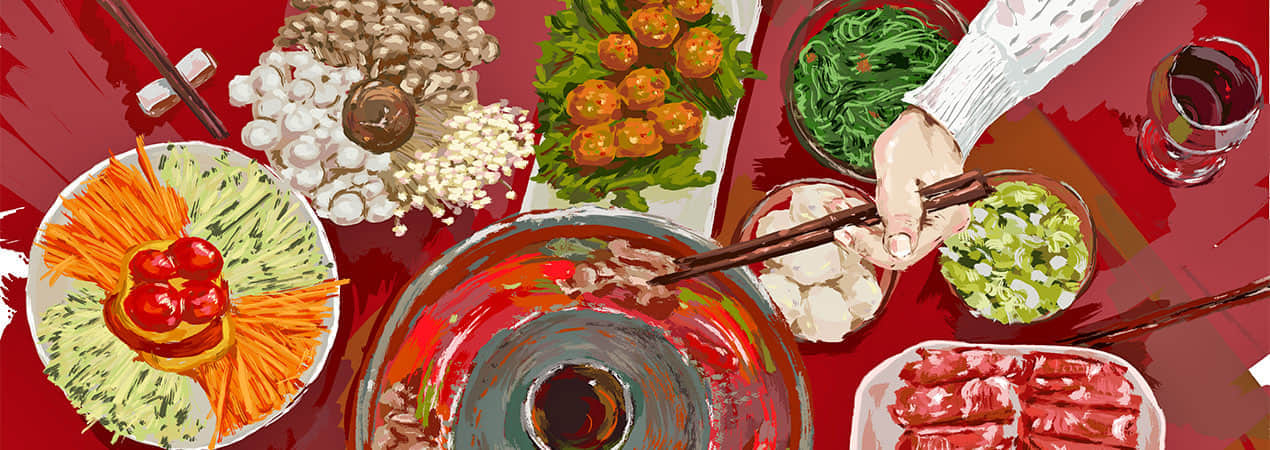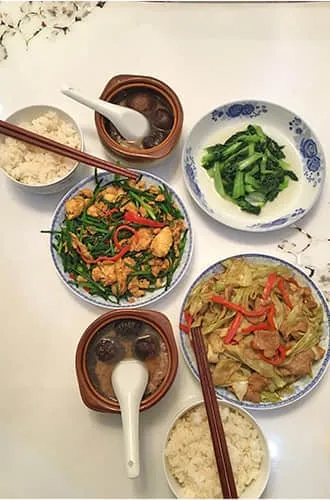20 Free Pieces Of Advice To A Deep Dive into China Food Culture
Top 10 Tips To Deal With copyright Goods When Shopping In China1. Designer bags, watches electronic gadgets and designer clothing are among the most counterfeited products. You should shop for these items with extreme caution.Pro: Helps you focus your scrutiny on likely fake products.Cons: It's possible to be suspicious of genuine products if you don't have the proper knowledge.
2. Look for genuine product informationShop with a brand you already know. Be aware of the specifics of their branding, materials, and stitching.Pro: Increases your skill in spotting subtle differences between fake and real products.Con: Time-consuming, particularly when dealing with products that you're not as acquainted with.
3. Trusted StoresTIP: When buying expensive products be sure to buy from brands that are official or trusted malls such as Beijing's China World Mall or Shanghai's Plaza 66.Pro: Assures authenticity of the product and comes with warranties and receipts.The con is that items can be significantly more expensive than in street markets or small stores.
4. Labels and tags must be inspectedBeware of misspellings, inconsistent typefaces or inferior materials on packaging and labels.Pro: An easy way to detect fakes.Contraints: Fake items can be high-quality and closely resemble those of the original which makes them difficult to distinguish.
5. Beware of "too good to be true Price"Tip: Extremely low prices for expensive items are a red flag. Luxury products are seldom sold at prices lower than the retail value.Pro: It will help you avoid obvious scams.Pros: Some sellers employ moderate pricing to create a more convincing copyright.
6. Demand Certificates to Authenticate the authenticity ofGet documentation to verify authenticity when buying products like jade, antiques, or other brand-name products.Pro: Gives you extra security when purchasing.Con: Because certificates can also be forged this method isn't foolproof.
7. Try Before Making PurchaseYou should test high-end electronic devices before making your final decision.Pro: It allows you to confirm the functionality and quality.Pros: Certain sellers might not permit testing, or restrict tests to simple tasks.
8. Beware of buying antiques without knowing the best way to use them.Tips. To determine whether an antique is authentic It requires a lot of knowledge or expert verification. If you are not confident about their authenticity, avoid them.Pro: There is less risk of scamming with a fake.Con: You may miss out on decorative items that are visually appealing but not authentic.
9. Utilize an Local Guide that You Can TrustTIP: A local guide familiar with the markets can assist in identifying reputable vendors.Pros: It saves time and eliminates the risk of shopping in foreign markets.Cons: Some guides may charge a fee or a tip that can increase the price.
10. Embrace your intuitionRefrain from purchasing if you believe there's something wrong such as the customer's attitude, the product's quality, or the price.Pro: Helps you keep from regretful shopping.Con: Your over-cautiousness could result in you missing out legitimate deals.
Advantages of avoiding copyright productsDurability - Genuine products are more durable and last for longer. They also are more economical.You can rest assured that you will not be scammed or swindled.Legal Security: Certain tourist destinations penalize travellers who refuse to return copyright products.It is essential to support authentic products to maintaining ethical business procedures.The downsides of avoiding fake goodsPrices are higher: authentic items are often much more expensive.Limitation of Availability Limitation of Availability: Original products may not always be sold on the streets or in smaller shops.The counterfeits can be high-quality and offer great value.With these suggestions by following these tips, you'll be able to navigate the shopping experience confidently in China and make educated decisions about authentic or fake items. Take a look at the top a guide to China food scene for site info including explore the riChness of Chinese food, explore local Chinese cuisine, taste the regional flavors of China, experience traditional Chinese food, explore the riChness of Chinese food, a taste of China best local foods, Chinese cuisine you need to try, Chinese cuisine you need to try, culinary experiences across China, the best food destinations in China and more.

Top 10 Tips When Visiting Temples That Are Famous In China
1. Respect the rules of the temple. Each temple will have its own rules. Be aware of them, especially when participating in ceremonies or entering sacred spaces.Pro: Shows respect for the local culture and temple's sacred space.Con: Learning all the rules can be overwhelming, especially in temples with complex rituals.
2. Be Quiet and RespectfulTips: Maintain a calm demeanor by keeping quiet during ceremonies or in the temple. Be careful not to talk too loudly or laughing.Pro: It creates a peaceful environment for worshipers.Con: You may find the silence awkward in the event that you are unfamiliar with the culture or your surroundings.
3. Dress ModestlyAvoid revealing clothing. Wear long pants, skirts or dresses to be respectful. Some temples offer scarves and shawls as a way to cover up bare arms.Pro: Represents respect for the sacred space as well as those who attend worship there.Cons: You might need to plan ahead or wear extra clothing on hot days.
4. The Ritual of OfferingFollow locals' lead if you would like to present incense, fruits or other offerings.Pro: This will show that you respect the customs and traditions.Cons: Participating in the ritual can be uncomfortable if your understanding isn't clear. the meaning behind it.
5. Do not interrupt your meditation or prayer.Tips: Be careful not to disturb worshippers who are praying or meditating. Do not take photographs or have conversations when other worshippers are engaged in spiritual activities.Pro: Demonstrates a respect for diversity of culture and encourages the tranquility and reverence of the environment.Con: You may be tempted to record moments to keep in your memory However, doing this could feel intrusive.
6. Participate in the Lighting of IncenseTip: Chinese temples have a ritual of lighting incense. Incense is lit to show respect to the gods, when you're allowed. In both hands, bow slightly at the time you are offering it.Pro: This shows that you are a temple member who respects the tradition and actively engage in its traditions.Cons: Incense might be unfamiliar for some travelers and improper handling may be considered disrespectful.
7. Don't touch Sacred Statues & ObjectsAvoid touching sacred statues or objects of worship. Avoid touching temple objects or relics, unless you have been specifically invited.Pro: It safeguards the sanctity and reverence of the temple.Con: Confusing if you are not familiar with the temple boundaries.
8. Be aware of Temple HierarchyTips. In some temples, you may find different levels or the sanctity. Be mindful of where you step--avoid walking in front of altars or statues of the gods and be aware of where you should bow.Pro: Be respectful of the temple and keep it in good order.Cons: The hierarchy is not always clear, and it takes extra effort to decide what is acceptable.
9. Keep Offerings HumbleBe modest with your gift giving and in keeping with the local culture. Expensive or extravagant presents may be considered inappropriate.Pro: Shows humility and respects local customs.Con: You may feel uncertain about what offering is appropriate without guidance from a local source.
10. Take part in Temple Events If InvitedTip: Some temples offer special days, services or other ceremonies. If you're invited to participate, do so respectfully and by following the crowd.Pro: Connects you to the local culture and lets you participate in the temple experience.Con: You may feel awkward or uncomfortable If you're not familiar with the customs.
The Benefits of Observing Rituals in TemplesCultural Immersion - Participating in ceremonies can help you understand more about the customs and traditions in China.Respectful Interaction : By observing and interacting with respect to build positive relationships with locals and temple staff.Personal Growth: Participating in spiritual or cultural practices can be an uplifting and enriching experience.Enjoy a memorable experience by engaging in temple ceremonies.Cons of following Ritual Practices in TemplesUnknown. Visitors who are new to the area may encounter a jarring ritual, resulting in confusion or errors.Cultural UnfortunateLanguage Barriers - You might not comprehend the meaning behind rituals and instructions because of the language barrier.Physical discomfort: Certain rituals like bowing, or sitting for prolonged periods of time are physically taxing.Following these tips, and keeping in mind local customs will guarantee that you will have a pleasant and respectful visit to China's temples. You are also able to participate in their spiritual practices, without inflicting any offense on anyone. View the most popular explore China riCh food history for site examples including culinary experiences across China, must-try foods in China, China famous food destinations, Chinese food culture guide, explore China riCh food history, regional Chinese cuisine highlights, Chinese food you must try, discover hidden food gems in China, explore local Chinese cuisine, Chinese cuisine you need to try and more.
